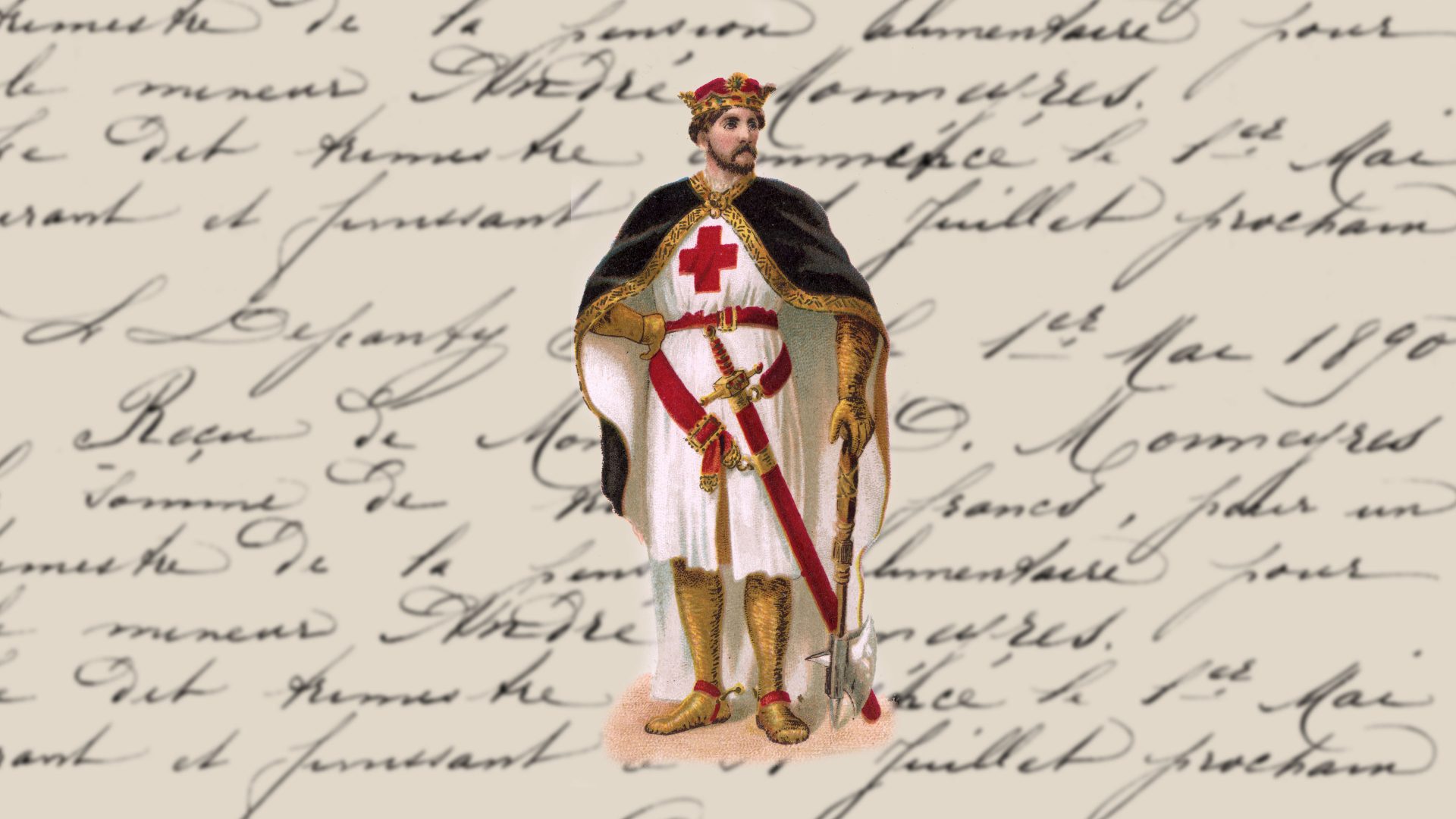In all probability, the great English monarch King Richard I (1157–1199) could not speak English (TNE #48). But the Lionheart’s native language was not the Norman French typical of the 12th-century nobility either. His mother tongue was Occitan, the Romance language of southern France, which was spoken then, as now, in different regional varieties such as Provençal, Gascon and Languedocien.
Richard’s mother was Eleanor of Aquitaine, Queen of France from 1137 to 1152 and Queen of England from 1154 to 1189. Richard himself was also
Duke of Aquitaine.
Aquitaine comprises the area of south-western France where Bordeaux,
Pau and Bayonne are all situated. It has been known in more recent times as
Gascony, and the region itself has had a very intriguing linguistic history.
Before French, and before Occitan, there was yet another language which
was spoken in this region. We know that before the arrival in south-western
France of the Romans and their Latin language – which eventually morphed
into French in northern France and Occitan in the south – the local language was a tongue which we now refer to as Aquitanian.
Most of the data we have from the Aquitanian language comes from surviving religious texts, dating from approximately 0-300 AD. These were
written in Latin, but they also contained about 400 names of people, and some 70 names of gods and goddesses which were Aquitanian. There is also a fair amount of evidence to be obtained from modern but originally Aquitanian place-names, though we sadly have no running texts in the language, and so no data other than these individual words.
But the evidence from these words is nevertheless very helpful. They show
rather clearly that Aquitanian was related to the modern language Basque
(see TNE #35), which has survived in its current location on either side of the
western Pyrenees since prehistoric times, though we have no written evidence of Basque from before about 1100 AD. The language has no known
extant relatives, or at least none which have been convincingly demonstrated to be so.
The late Professor Larry Trask, a leading expert on the linguistics of Basque, wrote that a large number of Aquitanian forms are “transparently Basque”, and many others can plausibly be identified as being Basque, though this fact was not firmly established until the 1950s through the pioneering work of the distinguished Basque linguistic scientist Koldo Mitxelena.
The Aquitanian word arixo ‘oak’ would seem to correspond to modern Basque haritz; atta ‘father’ is almost certainly the same as Basque aita; belex
‘black’ is related to beltz in Basque; Aquitanian sembe ‘son’ corresponds to
Basque seme; hanna ‘brother’ corresponds to anaia in Basque; Aquitanian oxson ‘wolf’ to otso, and siri ‘white’ to Basque suri.
One possibility is that Aquitanian was a direct ancestor of Basque, so that
Basque is simply a modern version of Aquitanian, just as Occitan is a modern version of Latin. Another possibility is that Aquitanian was one of a number of sister languages which all derived from some common ancestor, and that Basque descends from one of the now-lost sisters of Aquitanian rather than from Aquitanian itself.
A number of historians believe that Aquitanian continued to be spoken, perhaps as far north as Bordeaux, until the early Middle Ages, and maybe even until around 1000 AD.
ANCESTOR
Ancestor was borrowed from the Norman French auncester, which had
come down from Latin antecessor, which was originally a military term
signifying a scout, one who ‘went before’. Antecessor and antecede do also
occur as English words, even if they are encountered much less frequently
than the more usual predecessor and precede.




